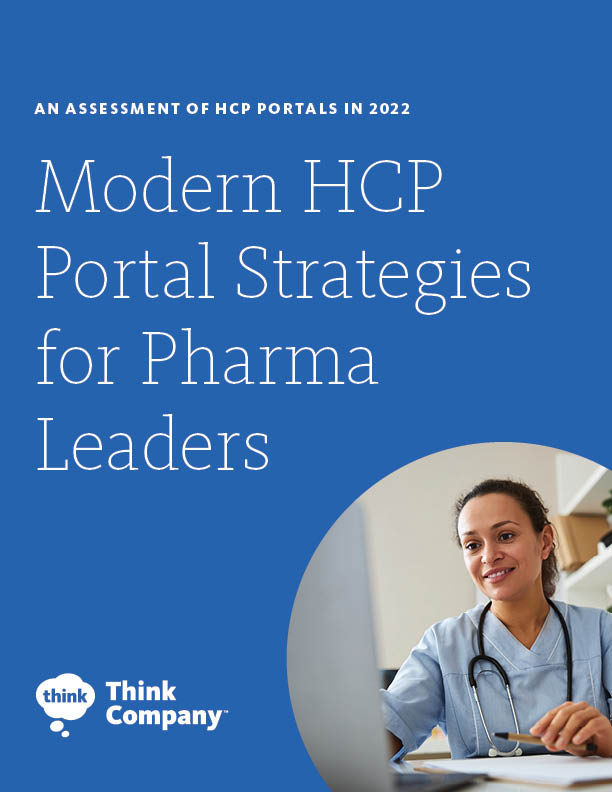Table of Contents
- Five Building Blocks to Achieving Diversity, Equity, and Inclusion in Clinical Research
- Immunotherapies Merit Unique Patient-Reported Outcomes to Inform Treatment Tolerability
- Use Plain Language to Increase Understanding: The MRCT Center Clinical Research Glossary
 Podcast: ANVISA Explains Innovative Optimized Online Assessment Project
Podcast: ANVISA Explains Innovative Optimized Online Assessment Project- The Rights and Ways for Children to be Involved in Clinical Trial Decisions
- Complex Biomarkers Create New Opportunities for Advancing Cancer Medicine
- AROUND THE GLOBE
 Podcast: Australian Clinical Trials Alliance Part 1 – Current Perceptions
Podcast: Australian Clinical Trials Alliance Part 1 – Current Perceptions Podcast: Australian Clinical Trials Alliance Part 2 – Future Projections
Podcast: Australian Clinical Trials Alliance Part 2 – Future Projections- Middle East Regulatory Landscape
Collaboration, Agility, and Adoption
-
Special Section: CLINICAL RESEARCH IN UKRAINE – Part 2
- White Paper
- Think Company: An Assessment of HCP Portals in 2022: Modern HCP Portal Strategies for Pharma Leaders
- We Are DIA
- Take This Survey: Your Chance to Contribute to Meaningful Change
- Executive Leadership
- Editorial Board
Subscribe
Love Global Forum’s new online format? Subscribe today and never miss an issue.
Editorial Board
Content stream editors
Gary Kelloff US National Institutes of Health
Ilan Kirsch Adaptive Biotechnologies Corp.
regulatory science
Isaac Rodriguez-Chavez Independent Consultant
Patient engagement
Chi Pakarinen MediPaCe
Natasha Ratcliffe COUCH Health
Thomas Smith Independent Patient Consultant
Data and Digital
Lisa Barbadora Barbadora Ink
Young Professionals Editor
Editorial Staff
Sandra Blumenrath, Managing Editor, Scientific Publications DIA Scientific Communications
Chris M. Slawecki, Senior Digital Copyeditor DIA Scientific Communications
Regional Editors
David Mukanga Bill and Melinda Gates Foundation
ASEAN
Jin Shun Sandoz
AUSTRALIA/NEW ZEALAND
Richard Day University of New South Wales, Medicine, St. Vincent’s Hospital
CHINA
Ling Su Shenyang Pharmaceutical University, Lilly Asia Ventures
Europe
Julie O’Brien Pfizer
INDIA
J. Vijay Venkatraman Oviya MedSafe
JAPAN
Ozawa Goshi Real Discovery Outdoors Co,. Ltd.
LATIN AMERICA
Cammilla Gomes Roche
USA
Ebony Dashiell-Aje BioMarin
DIA Membership
Bringing together stakeholders for the betterment of global health care.
Acclinate
linical trials rely on volunteers, and it’s important that they come from diverse backgrounds. However, it’s been documented that 85% of those who participate in clinical research are Caucasian.
mmuno-oncology (I-O) therapies provide a unique alternative for treating different cancer types. By enhancing the individual’s immune system to target and fight cancerous cells, these therapies can increase the survivorship rate for many patients. But they can also lead to a wide experience of symptoms that affect treatment tolerability.
Multi-Regional Clinical Trials Center of Brigham and Women’s Hospital and Harvard
Multi-Regional Clinical Trials Center of Brigham and Women’s Hospital and Harvard
Multi-Regional Clinical Trials Center of Brigham and Women’s Hospital and Harvard
Multi-Regional Clinical Trials Center of Brigham and Women’s Hospital and Harvard
Harvard Medical School
edical and research information and terminology can be challenging to understand, even at the best of times. But for patients and their loved ones, facing a difficult health situation and considering possible research options makes sifting through technical study information an even more daunting task. As an industry, we must work toward using harmonized plain language definitions to explain clinical research. The MRCT Center together with CDISC is bringing us one step closer to that goal, with the MRCT Center’s patient-centered Clinical Research Glossary becoming a global standard.
![]() Podcasts
Podcasts
Sant Joan de Déu Research Institute, Spain
hildren and young people have been historically excluded from participating in clinical trials to protect them from any potential harm. Considering that there are many conditions that only affect the pediatric population, the only way to study them and to investigate novel potential treatments is by designing clinical trials addressed to this targeted population.
uccesses in understanding disease biology lead to the discovery and use of complex biomarkers in drug development, characterizing patient disease and making patient care more effective. High-technology methods help address the opportunities and challenges of using complex biomarkers, most often in clinical cancer research geared toward precision medicine. These technologies are less invasive and/or provide more data than standard tissue biopsy and imaging.
White Paper
White Paper
National University of Pharmacy, Ukraine
University of Liverpool (UK)
Roche, Switzerland
Semmelweis University, Hungary
Good Clinical Practice Alliance – Europe (GCPA)
Strategic Initiative for Developing Capacity in Ethical Review (SIDCER)
@SIDCER_EU
he ongoing war in Ukraine is teaching us invaluable lessons about the resilience of people and the impact of such events on clinical trials and research. It also reveals opportunities to improve guidance to protect people and ensure research quality during disruptions which can also include pandemics and natural disasters. One such opportunity arises from the ongoing revision of the ICH E6 Good Clinical Practice (GCP) Guideline as this document shapes clinical trial operations.
Protecting research participants and the quality of research data are fundamental to global GCP and are key priorities for regulatory authorities, including research ethics committees. The local regulatory authority in Ukraine is collaborating with regulatory and health authorities such as the European Medicines Agency and the World Health Organization to identify solutions to the challenges imposed by the war. These learnings may provide useful lessons for similar situations elsewhere and contribute to the evolution of regulatory and clinical trial practice.
Dnipro State Medical University
ARENSIA Exploratory Medicine GmbH
aintaining quality and ensuring participant protection in clinical trials during wartime takes incredible effort and coordination. The ongoing war places unprecedented pressure on the healthcare system and clinical trials in Western Ukraine, and on patients, who need to find ways to continue treatment in their own country or find treatment in another country and then travel there. Investigators and sites coordinated activities to maintain good clinical practice (GCP) as the war in Ukraine began, ensuring continuity of research and care and providing lessons for future clinical trial and research conduct during disruptions such as war.
t is clear that good health is not possible without access to medical products, which are in this context considered to be instruments for public health, and that clinical trials are an integral and essential part of the overall product development process.
State Expert Center, Ministry of Health, Ukraine
State Expert Center, Ministry of Health, Ukraine
National University of Pharmacy, Ukraine
efore the war, the field of clinical trials had developed steadily in Ukraine, framed in a strict legal framework oriented to the legislation of the European Union and based on the Declaration of Helsinki, ICH GCP, and EU Directive 2001/20 (the Clinical Trials Directive). The State Expert Center regularly conducted clinical trials inspections, and its inspectors took part in EU GCP Inspectors Working Group Workshops and participated as observers in EMA, FDA, and PMDA inspections.
Labcorp Drug Development, Poland
Equipoise Consulting
Austrian Agency for Health and Food Safety
Kateryna Orlovska
MSD, Ukraine
Pratia/Pratia Clinic, Ukraine
nsuring the safety of research participants during times of war is unique to the situation of each individual participant and must consider multiple aspects of each individual and the situation they are in.
![]() Podcasts
Podcasts
![]() Podcasts
Podcasts
Collaboration, Agility, and Adaptation
he COVID-19 pandemic highlighted the need for new ways of thinking about delivering regulatory effectiveness and efficiency, and for flexibility from all stakeholders to ensure that therapies continued to reach patients in a timely manner.
Most countries in the Middle East already had priority or expedited pathways prior to the pandemic. These pathways delivered shorter assessment timelines and demonstrated the usefulness of regulatory reliance during the global emergency. Jordan, Saudi Arabia, Bahrain, and Egypt created guidelines for Emergency Use Authorizations (EUA) for vaccine or therapeutic product use, as well.
IA’s Study Endpoints, Statistics & Data Science, and Clinical Research Communities have formed a Meaningful Change Working Group which aims to help sponsors calculate “meaningful change thresholds” for their clinical trial endpoints, to supplement traditional statistical tests and improve the interpretability of trial data.






